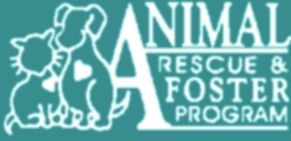Play Biting
One of the biggest complaints we hear about puppies is about their play biting. Puppies begin to learn bite inhibition from their litter mates and mother when they are young, and it becomes our job to continue this education. At the same time play biting seems to be self-reinforcing to the puppy; it just plain feels good to chew on us, especially during the teething stages. Unfortunately, we sometimes unintentionally reinforce the problem by letting little puppies nibble on our hands (when it doesn’t hurt at all), and by letting them pull on our pants legs and bite our shoe laces ( when they are too small to do any damage).
Puppies must learn that biting is never acceptable, even in play. Traditional force methods such as clamping down and holding the muzzle shut or jabbing your finger in the puppy’s mouth, are not effective in 90% of dogs and can be very dangerous. These methods can make your dog afraid of you as well as turn him into an aggressive biter.
As with most behavioral problems, mouthing and play biting usually stop once the puppy learns more acceptable ways of getting attention. If you teach your puppy to Sit and to Sit for Attention, then you can tell the puppy to Sit whenever he starts to present an unacceptable behavior. By distracting the puppy away from negative behavior and having him respond with a positive replacement behavior, the negative behavior will often go away with out stern physical corrections which, if used, could lead to more serious aggression.
The games you play with your puppy and how you play them are very important. Rough play such as pushing side-to-side or back and forth at the shoulders, tug-of-war, or chase games result in an adrenaline rush which encourages play biting and mouthiness — behaviors which could continue for the rest of the puppy’s life. Until your puppy understands the command “Enough” and instantly stops whatever he is doing, you should not rough house with your puppy. Aggressive play lessens bite inhibition and is actually a “game” used to teach protection dogs for “bite” work.
What should you do about play biting? First, teach Sit. When your puppy starts mouthing, withdraw your hands, tell him to Sit, praise calmly and offer an acceptable chew toy. Never let children put their hands in or around the puppy’s mouth. Do not ever let the puppy use you or any family member as a chew toy, but do not make a big fuss out of play biting, either! If you give play biting too much attention, you are still reinforcing this unacceptable behavior.
If your puppy is wound up and totally out of control, help calm him down and start to learn self control. Say “Enough” in a calm , but firm voice. Take him out side to run off excess energy, try a toy of play fetch. Whatever you do, suspend the play that was resulting in play biting. At times, some puppies can get so wound up and overstimulated that a quiet time-out for a nap in a crate will help. Since some puppies can only handle very limited playtime with young children before biting gets out of control, it is especially important to supervise these interactions. The puppy must not be allowed to practice this unacceptable behavior, and must learn respect for the children as well as adults.
If your timing is right , a loud and dramatic “Ouch” or a moderate scream of pain the instant the puppy bites can be very effective. You really have to mean it (which usually is not hard since play biting can hurt). Then, stand back and fold your arms and give the puppy a disapproving look, and then turn your back and walk away, as if to say, “I won’t play this game.” Ignore the puppy for a minute or two and then call him to you, have him Sit, and offer praise and reward in the form of a dog treat or play toy.
Another option is the “freeze and ignore” technique. If the puppy puts your hand in his mouth , stay still, do nothing — do not even look at the puppy until he gets the message that biting is not getting your attention. When he quits biting, you should praise him, tell him to Sit, and calmly praise and pet him. If he goes for your hands again, freeze and totally ignore him (no eye or physical contact) until he sits, repeating as needed until he understands that biting gets nothing, but sitting gets positive attention from you.
Consistency is crucial! All family members need to handle the play biting problem in the same way. By addressing the playbiting problem while it is a minor behavioral problem, you can prevent it from becoming a major and painful (for you) lifetime habit. The sooner you interrupt the play biting cycle by helping the puppy understand every single time what behavior is required, the faster the puppy will become a welcome and well-adjusted member of your household.
The above information was furnished by Melanie Schlaginhaufen and Judy Allen of Best Friends Bed and Biscuit. Reprinted with permission. For more information or a consultation contact Best Friends Bed And Biscuit @ (336) 643-9096.